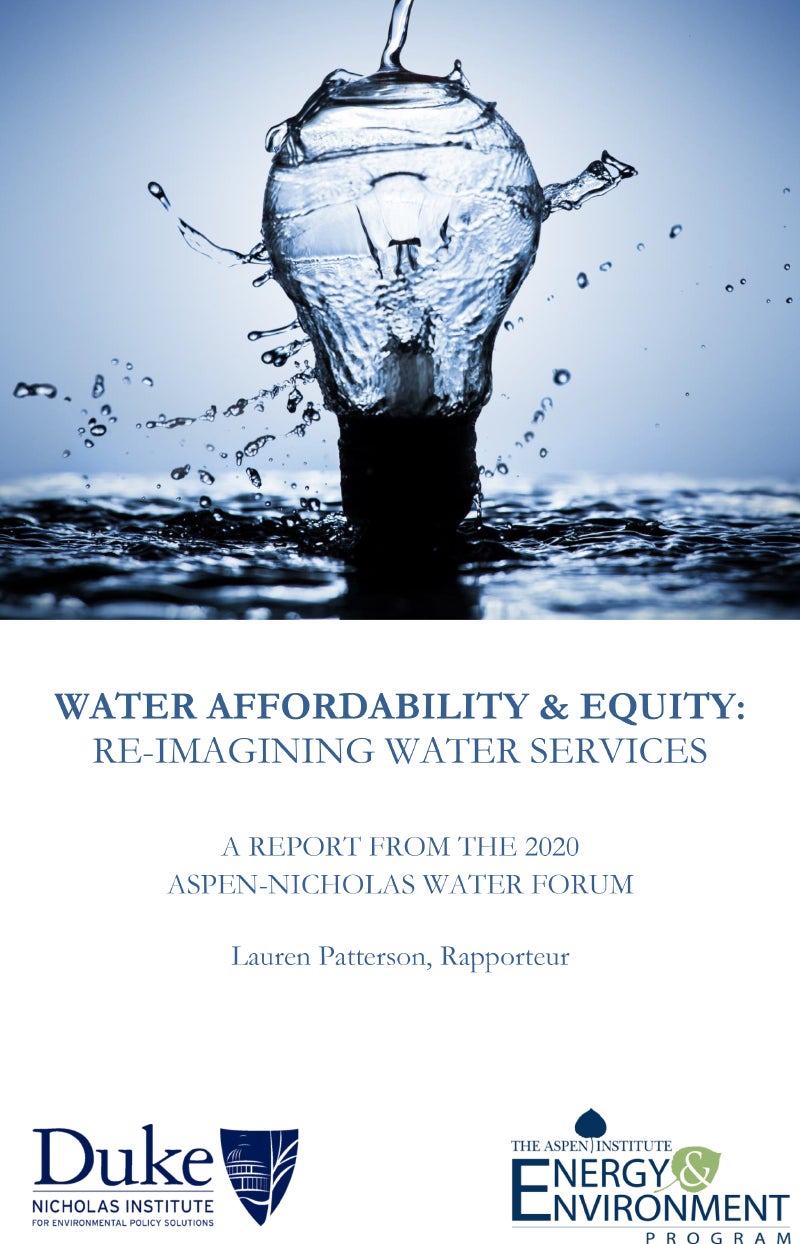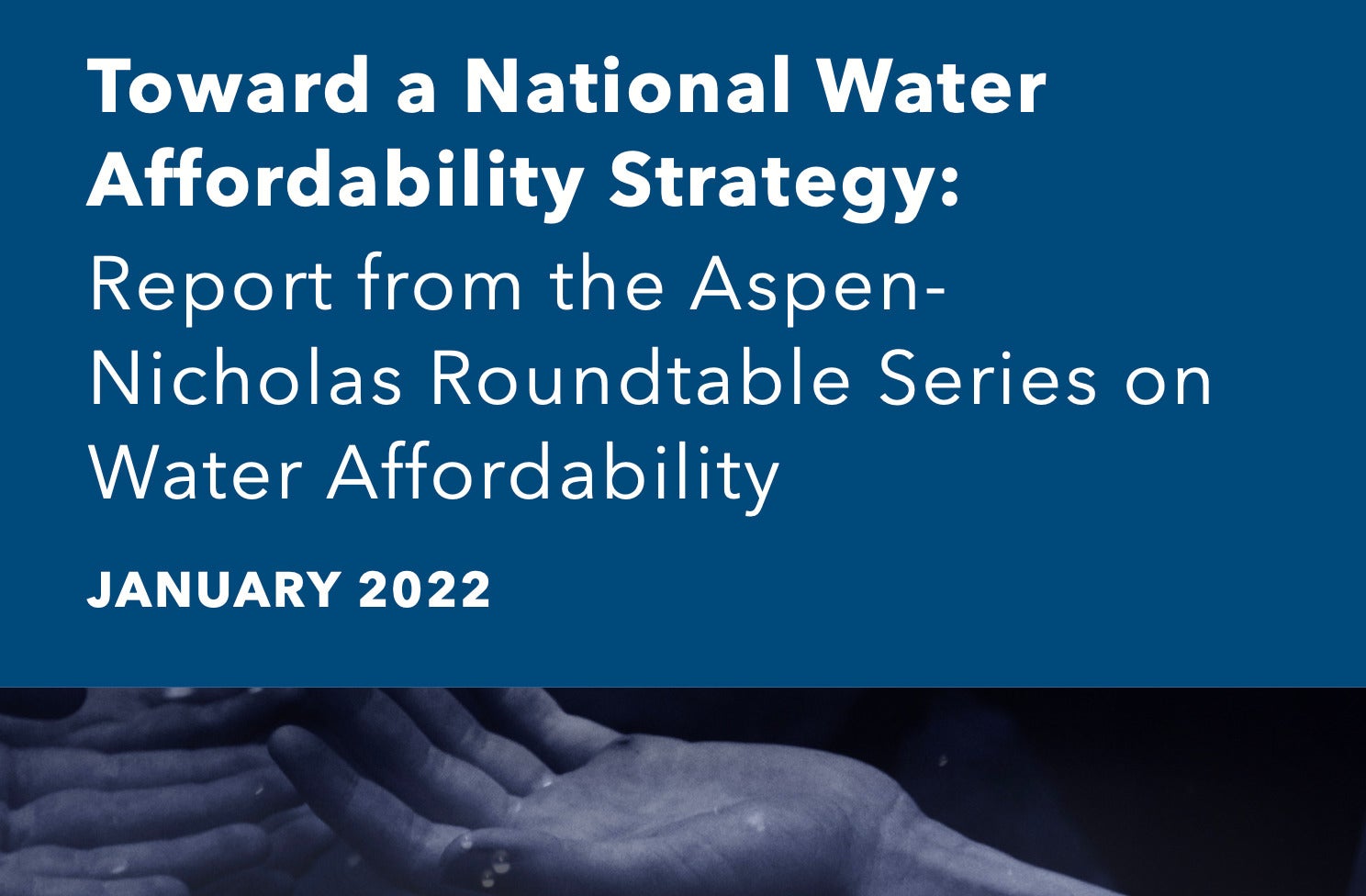The 2020 Aspen-Nicholas Water Forum explored what constitutes good water governance through the lenses of affordability and equity, a topic that was made ever more prescient given the circumstances of the year. 2020 has been a year overwhelmed by a global public health crisis, political and social unrest, and natural disasters.
In March of this year, the World Health Organization identified the global outbreak of COVID-19 as a pandemic, a declaration, and escalation which underscored the critical importance of water and sanitation for public health. Amidst immense economic disruption and skyrocketing unemployment in the U.S., many states passed shut-off moratoria, so those who lost their jobs could still access water. States and local governments diverted Coronavirus Aid, Relief, and Economic Security (CARES) Act funds to utilities to aid in revenue losses from nonpayment and decreased water use from closed businesses. For the first time, the nation began to grapple in a significant way with how many people lack access to water and how many more cannot afford their water.
In May, a national conversation around race erupted after the police killing of George Floyd created socio-political reverberations around the globe, further shining a light on water system inequities. The marks of systemic racism are embedded in water systems that were constructed during the era of redlining and unfair housing policies and have left a legacy of unequal water access and unfair shut-off practices in communities of color. Finally, in the fall, the western U.S. struggled to control immense fires, with 4% of California burning, while the Gulf Coast repeatedly braced themselves against tropical storms.
The intersecting public health, unemployment, racial justice, and climate crises have revealed deep, systemic fault lines in our society, and exacerbated health and financial disparities across racial, gender, and geographic lines, making the topic of this year’s forum critically relevant.


